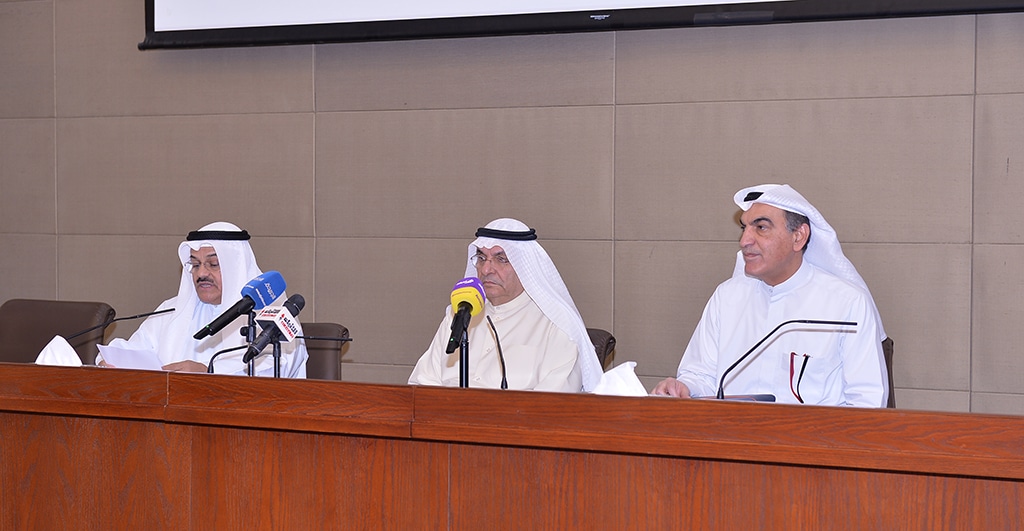KUWAIT: Chairman of Kuwait Chamber of Commerce and Industry (KCCI) Mohammad Al-Saqer said “the disappointment that Kuwait is currently experiencing is the most bitter, deepest and oppressive since the disaster of the invasion”, adding “the economic scene, as usual, is forgotten and neglected due to the dominance of political issues, and may exceed the political situation in pain, oppression and frustration.”
Saqer pointed out in his speech that he will not address the economic problem itself, nor economic reforms, because this task was accomplished years ago through a flood of studies, committees and recommendations, which recorded close consensus on diagnosing and analyzing the problem, reform policies, mechanisms, conditions and costs.
Saqer’s statement came during the 59th meeting of its General Assembly at the Chamber’s headquarters on Wednesday, where he announced the results of the fiscal year that ended on Dec 31, 2022. Saqer said with the receding of the COVID-19 pandemic and its repercussions, KCCI’s revenues grew to KD 6.8 million, while its expenses increased to KD 6 million, with a surplus of nearly KD 760,000. KCCI’s social responsibility contributions reached KD 620,000, or nearly 80 percent of the savings and more than 10 percent of total revenues, he added.
“Kuwait carries hopes and aspirations and tries to climb the mountain towards freedom, justice and progress, but before it reaches its goal, its drops back on the slope. Attempts to climb and falls are repeated, so that history becomes in vain and repetitive, instead of being constructive and prosperous,” Saqer said. “The country will find itself, after five decades or more, concerned with the same challenges and same questions, exhausted by the same differences and helpless in the face of the same challenges,” he added.
 Attendees of the general assembly.
Attendees of the general assembly.“The downfall came this time in the midst of regional and international transformations that are redrawing the borders of states, distributing interests and forming alliances, so that there is nothing left for those who missed the train except to mourn at the waiting stations,” Saqer said.
Private sector and Kuwait’s future
Regarding the hurdles facing the private sector in Kuwait despite the “close connection of this sector to country’s future vision”, Saqer discussed three main pillars that play a role. “The future of Kuwait and its generations is based on our success in designing and implementing a development model based on the private sector on one hand and on financial policies aimed at developing and sustaining wealth on the other,” he said. He stressed that although the private sector is central and important in its developmental role in Kuwait, this sector, with all its activities, institutions and people, is subjected to an unjust campaign that undermines its competence, role and usefulness, and calls into question its history, patriotism and credibility.
“The executive authority takes an equivocal position with regards to the private sector, raising slogans of its support and confidence in it, but works against it. The state’s desire to strengthen the role of the private sector should not remain a banner without content; rather the government should translate this desire through programs and projects according to specific frameworks and timetables, away from constructive phrases,” Saqer added.
Al-Saqer concluded by saying that at the end of 2020, alerting to the indications and repercussions of downgrading Kuwait’s credit rating under the title “Our homeland is in danger”, KCCI published a memorandum warning that Kuwait is heading towards a structural crisis that is comprehensive and penetrating to the core of all activities of the state and society without exception, calling for a pause that accommodates the comprehensive and profound changes locally and globally, technically, politically and economically.











